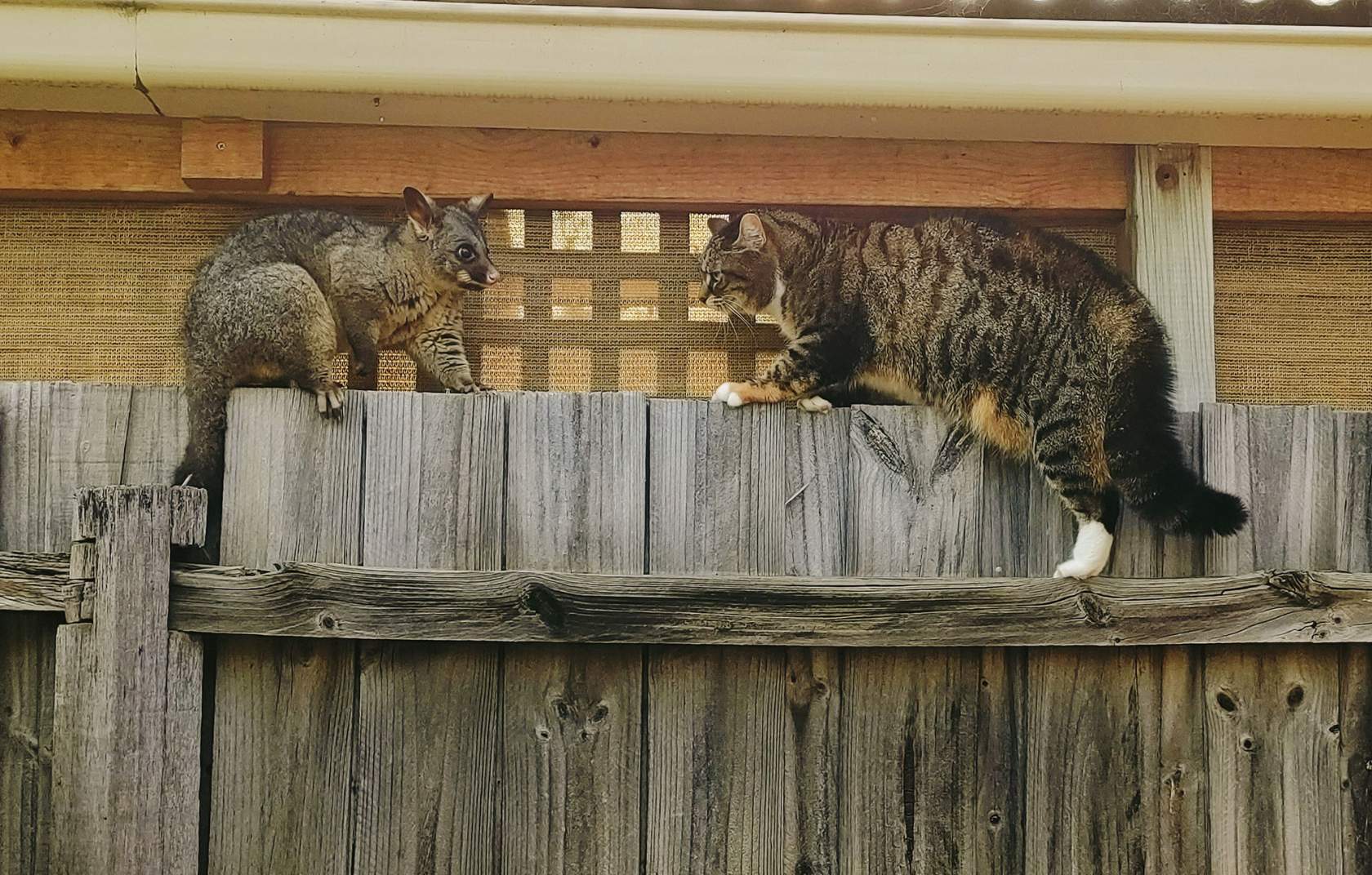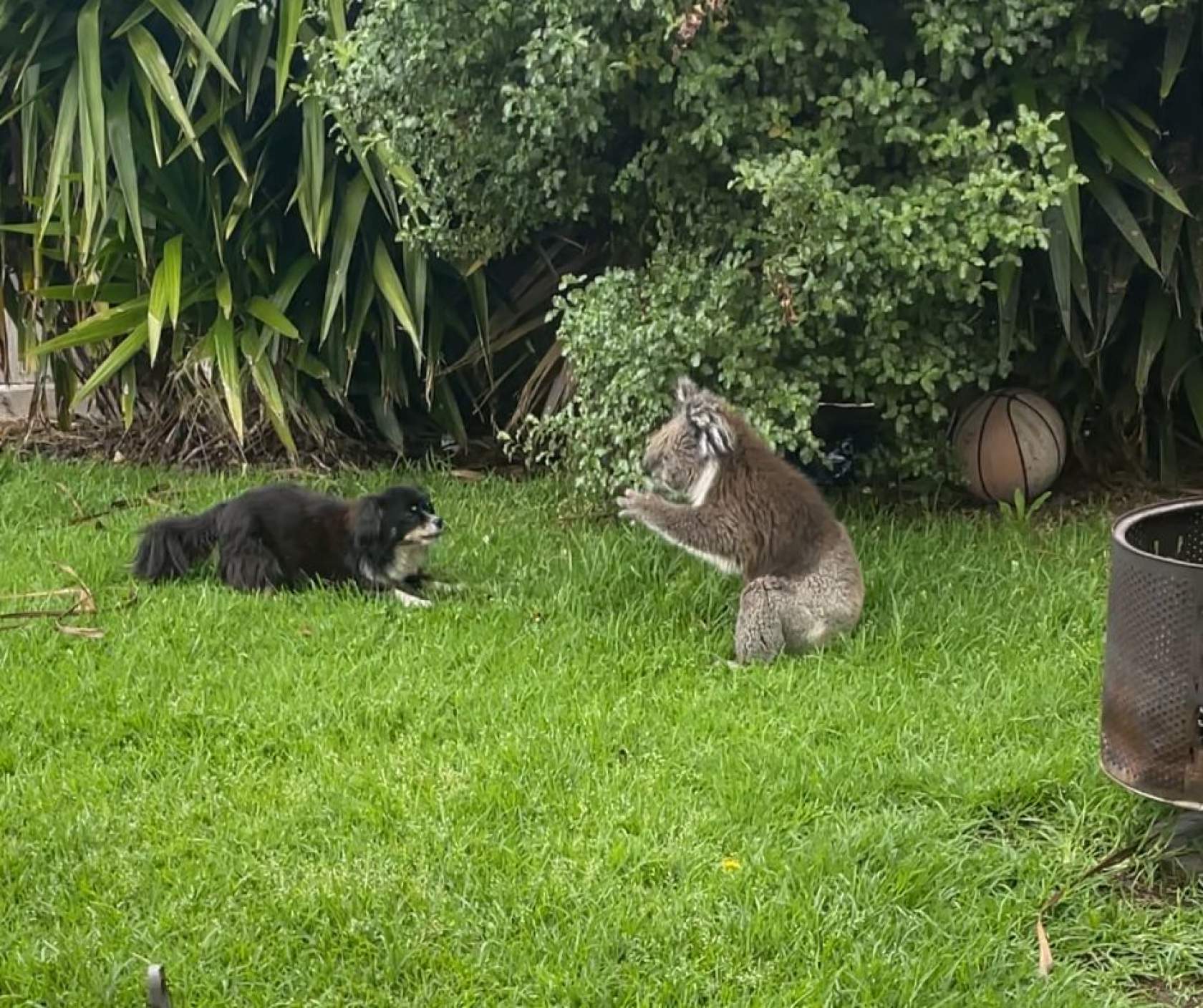
A common report to Wildlife Victoria’s Emergency Response Service is when a native animal has been attacked by a domestic animal.
Pets are valued and important members of many families, and pet ownership has been shown to decrease stress and improve physical and mental health. Our role as a responsible pet owner is to keep our cats and dogs safe, and to ensure they do not negatively impact our native wildlife.
There are many easy things you can do to keep your pets and wildlife safe.
Keep your cats indoors or limit outside time to a cat enclosure.
Installing a cat run or cat enclosure is a great responsible alternative to allowing them to roam. Cat enclosures allow your pet to experience the outdoors while not having a negative impact on other species. It also has the advantage of keeping your pet safe too, with research showing indoor cats live longer, healthier lives.
Walk your dog on a lead, especially when walking in areas known to be home to native wildlife. Respect the signs located on walking tracks and reserves that require your dog to be on a lead or state dogs are not allowed.


Wildlife Victoria often receives reports of kangaroos that have been chased or attacked by dogs. Dogs can cause significant injuries including bite wounds and broken limbs. The chase can also cause kangaroos to suffer from a stress-related condition called myopathy. Myopathy leads to the destruction of muscle, including cardiac muscles, and may lead to death. Treatment for myopathy depends on the severity of symptoms with severe cases often resulting in euthanasia.
Tie a bell to your cat or dogs’ collar to give native animals some warning.
Desex your pets to prevent unwanted litters and to lessen the abundance of stray animals.
Microchip and register your pets with your local council and keep your details up to date.
Provide different types of enrichment for your pet including social, cognitive, environmental, and sensory enrichment.
If your pet has attacked a native animal, please call Wildlife Victoria’s Emergency Response Service immediately on (03) 8400 7300. This is important even if the animal appears fine as cats and dogs have bacteria that can be fatal to smaller native species or there may be internal injuries.
We hope that by increasing your understanding and awareness of our beautiful wildlife, you will feel empowered to manage wildlife situations confidently and in an informed, safe and appropriate manner. For support at any time, please call our 24/7 Emergency Response Service on (03) 8400 7300.
